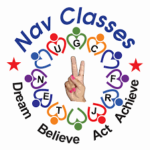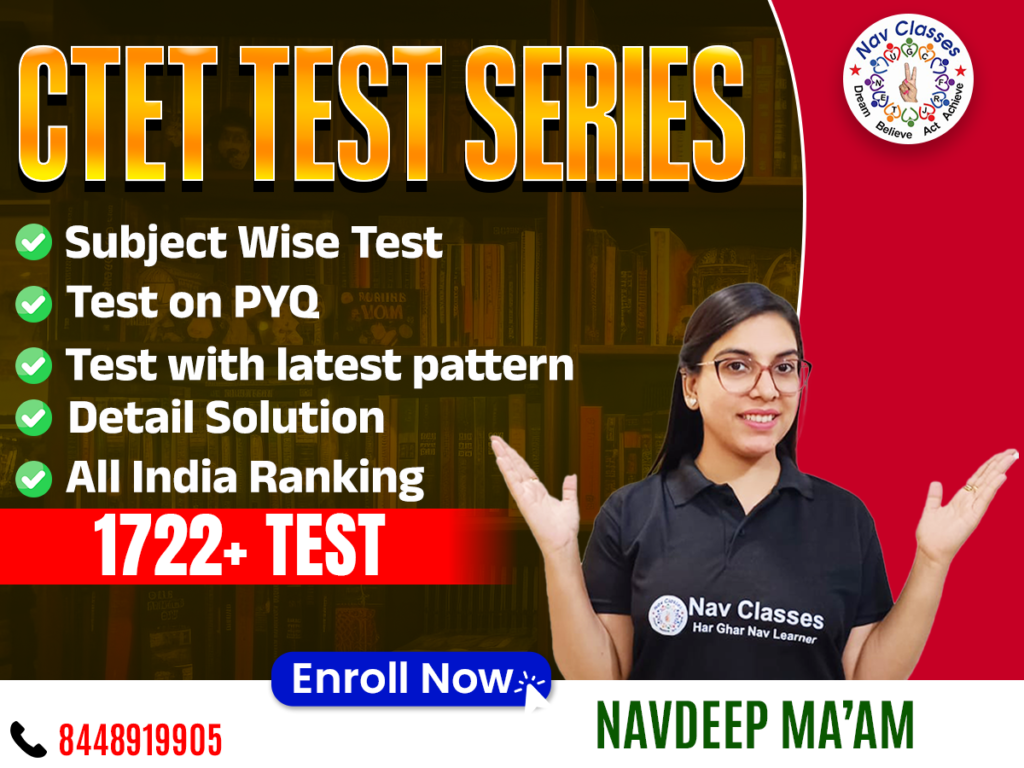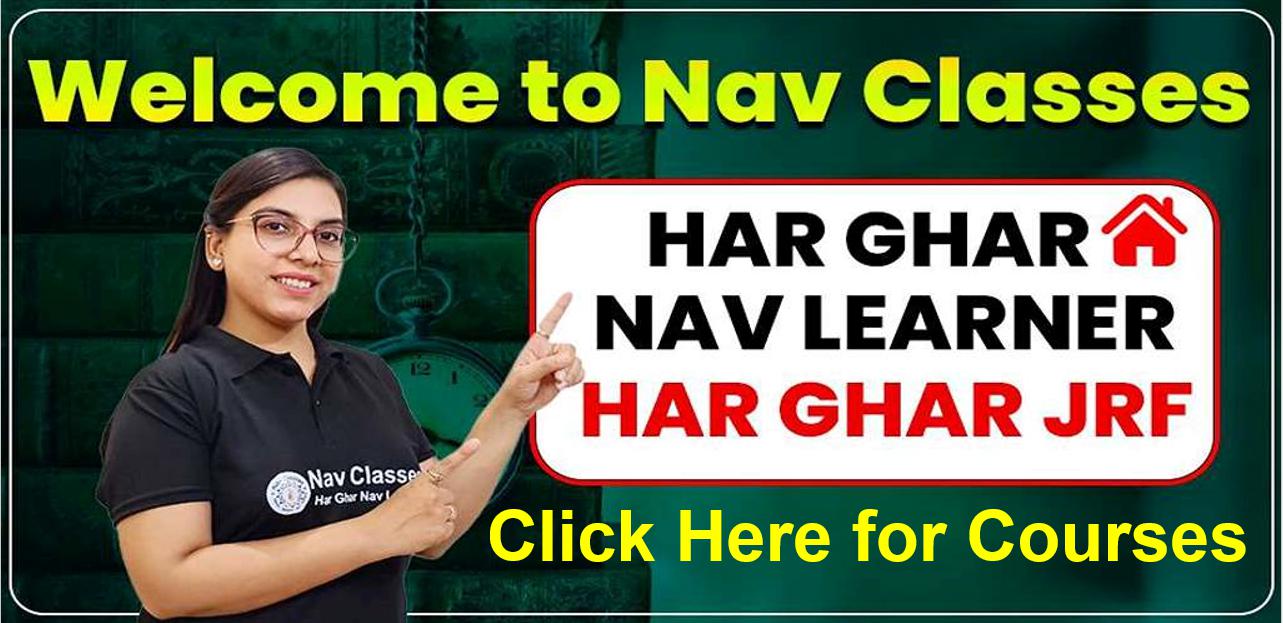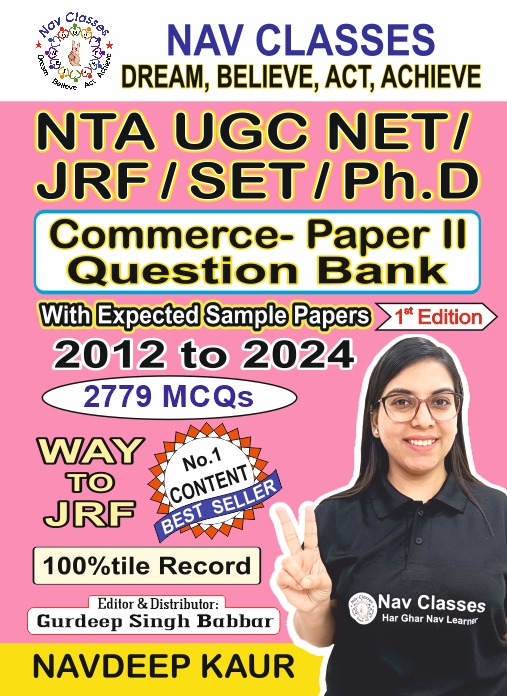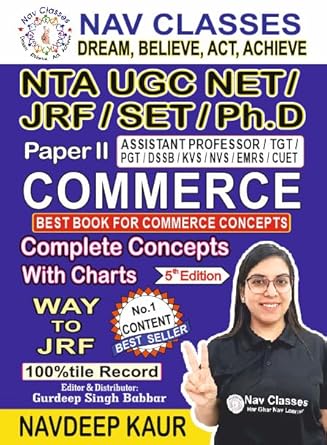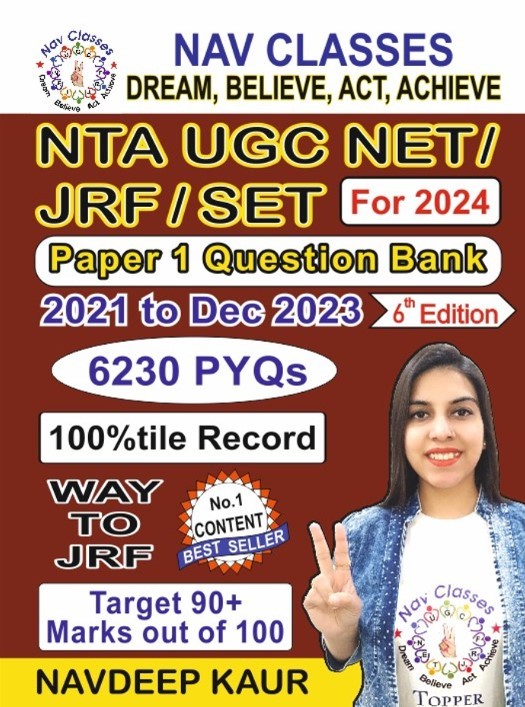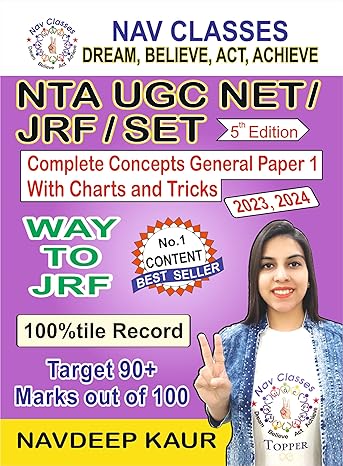CTET January 2024 Exam
The Central Teacher Eligibility Test (CTET) is conducted to determine the eligibility of candidates for teacher posts for Classes 1 to 8 in Central Government Schools such as NVS/KVS and other Schools etc. CTET will be now conducted in offline mode. The validity of CTET has been extended for a lifetime period. However, it’s important to refer to the official notification to know the exact date and other relevant details regarding the CTET January 2023 examination. States that do not conduct TET Exams select candidates through the CTET Examination. CTET December 2023 Notification pdf along with application form has been released today, 3rd November 2023. The application forms are available till 23rd November 2023.
CTET December 2023- Important Dates
CTET December 2023 Notification has been released on the official website along with complete schedule on 03rd November 2023. The online application form of CTET 2023 is available from 3rd November to 23rd November 2023. The CTET Dec 2023 Exam will be held on 21st January 2024. The important dates for the CTET 2023 December Exam have been updated in the below table.
| CTET December 2023- Important Dates | |
| Events | Dates |
| CTET Notification 2023 Release | 03rd November 2023 |
| CTET Application Form 2023 Starts From | 03rd November 2023 |
| Last Date to fill Online Application | 23rd November 2023 |
| Last Date for submission of fee | 23rd November 2023 |
| Final verification of payment of fee by bank | 28th November 2023 |
| Online Correction Schedule | 28th November to 2nd December 2023 |
| CTET Exam Date 2023 | 21st January 2024 |
CTET 2023 Exam Summary
An overview of CTET has been provided in the below table. The candidates interested and looking for an opportunity to begin their career as a teacher in government & government-aided schools must know every detail about CTET December 2023.
| CTET December 2023 Exam Summary | |
| Exam Conducting Body | Central Board of Secondary Education (CBSE) |
| Exam Name | CTET December 2023 (Central Teacher Eligibility Test) |
| Exam Level | National |
| Exam Frequency | Twice a year |
| Exam Mode | Offline (OMR Based) |
| Registration Dates | 03rd November to 23rd November 2023 |
| Exam Duration | 150 minutes |
| Language of Paper | English and Hindi |
| Exam Purpose | For accessing the eligibility of candidates for appointment as teachers in Classes 1-8 |
| No. of Test Cities | 135 cities across India |
| Exam Helpdesk No. | 011-22235774 |
| Official Website | www.ctet.nic.in |
CTET 2023 Application Fee
A candidate belonging to either the General or OBC category is required to pay Rs. 1000/- (if applying for either Paper I or Paper II) and Rs. 1200/- (if applying for both papers). The same amount is reduced to Rs. 600/- (if applying for either Paper I or Paper II) and Rs. 600/- (if applying for both papers) for candidates belonging to SC/ST category.
Fee Details for CTET Exam are as follows:
| CTET 2023 Application Fee | ||
| Category | Only Paper I or II | Both Paper I & II |
| General/OBC | Rs.1000/- | Rs.1200/- |
| SC/ST/Diff. Abled Person | Rs.500/- | Rs.600/- |
Note- GST as applicable will be charged extra by the Bank.
CTET December 2023 Eligibility Criteria
The Eligibility Criteria are different for selecting candidates for the post of teacher for Classes 1 to 5 and for Classes 6 to 8. Let’s have a look at the Educational Qualification required by the candidates for both these sections:
Educational Qualification for Classes 1-5
A candidate who has completed their Senior Secondary or its equivalent exam with a minimum of 50% marks and cleared or appeared in final year exam of Diploma in Elementary Education (2 years duration) OR
A candidate who has completed Senior Secondary or its equivalent exam securing a minimum of 45% marks and has cleared or appeared in the final year exam of Diploma in Elementary Education (2 years duration), according to the NCTE Regulations 2002. OR
A candidate who has completed Senior Secondary or its equivalent test with a minimum of 50% marks and has cleared or appeared in the final year exam of Bachelor of Elementary Education (4 years duration). OR
A candidate who has completed Senior Secondary or its equivalent test with a minimum of 50% marks and has cleared or appeared in the final year exam of Diploma in Education (2 years duration). OR
A candidate who has a Bachelor’s degree and has cleared or appeared in the final year exam of Diploma in Elementary Education (2 years duration).
Educational Qualification for Classes 6-8
A candidate who holds a Graduation degree and has passed or is appearing in the final year examination of a Diploma in Elementary Education (2 years duration). OR
A candidate who has completed his/her Graduation degree with 50% marks and has cleared or appeared in the final year exam of Bachelor in Education. OR
A candidate who has completed his/her Graduation degree with 40% marks and has cleared or appeared in the final year exam of Bachelor in Education, according to NCTE regulations. OR
A candidate who has completed Senior Secondary or its equivalent test with a minimum of 50% marks and has cleared or appeared in the final year exam of 4 years duration Bachelor of Elementary Education. OR
A candidate who has completed Senior Secondary or its equivalent exam with 50% marks and cleared or appearing in the final year exam of B.A.Ed/B.Sc.Ed or B.A/B.Sc.Ed. OR
A candidate who has a Graduation degree with 50% marks and has cleared or appeared in a B.Ed program of 1-year duration.
CTET December 2023 Selection Process
Candidates appearing for Central Teacher Eligibility Test (CTET) will be shortlisted on the basis of their score in the CTET December 2023 Exam. CTET is an eligibility test only which means, qualifying CTET does not guarantee jobs to the aspirants. They have to apply for recruitment at different schools based on the available vacancies which require CTET Certification for which the candidates must score more or equal to 60% marks in order to get selected.
CTET December 2023 Exam Pattern
CTET 2023 Exam will be conducted in two phases:
- Paper I
- Paper-II
Paper I is conducted for candidates who have been looking forward to becoming teachers for Class 1 to 5 and Paper II is conducted for candidates who aspire to become teachers for Class 6 to 8. Candidates also have the option to apply for both Paper-I and Paper II. Questions asked in both Paper I and Paper II are Objective Multiple Choice Questions. A candidate is required to score a minimum of 60% to qualify CTET 2023 Exam. One major thing to note is that the CTET score is now valid for a lifetime as announced by CBSE.
CTET Paper I Exam Pattern
| CTET Paper 1 Exam Pattern | ||
|---|---|---|
| Subject | Number of Questions | Total Marks |
| Language I (compulsory) | 30 | 30 |
| Language II (compulsory) | 30 | 30 |
| Child Development and Pedagogy | 30 | 30 |
| Environmental Studies | 30 | 30 |
| Mathematics | 30 | 30 |
| Total | 150 | 150 |
Nature and standard of questions
• The test items on Child Development and Pedagogy will focus on the educational psychology of teaching and learning relevant to the age group of 6-11 years. They will focus on understanding the characteristics and needs of diverse learners, interaction with learners and the attributes and qualities of a good facilitator of learning.
• The Test items in Language I will focus on the proficiencies related to the medium of instruction.
• The Test items in Language II will focus on the elements of language, communication and comprehension abilities.
• Language II will be a language other than Language I. A candidate may choose any one language as Language I and other as Language II from the available language options and will be required to specify the same in the Confirmation Page.
Opt for two languages in which you wish to appear for CTET. The List of languages and code are as follows:
| CTET December 2023 Languages | |||||||
| Code No | Language | Code No | Language | Code No | Language | Code No | Language |
| 01 | English | 06 | Gujarati | 11 | Marathi | 16 | Sanskrit |
| 02 | Hindi | 07 | Kannada | 12 | Mizo | 17 | Tamil |
| 03 | Assamese | 08 | Khasi | 13 | Nepali | 18 | Telugu |
| 04 | Bengali | 09 | Malayalam | 14 | Oriya | 19 | Tibetan |
| 05 | Garo | 10 | Manipuri | 15 | Punjabi | 20 | Urdu |
• The Test items in Mathematics and Environmental Studies will focus on the concepts, problem-solving abilities and pedagogical understanding and applications of the subjects. In all these subject areas, the test items will be evenly distributed over different divisions of the syllabus of that subject prescribed for classes I-V by the NCERT.
• The questions in the test for Paper I will be based on the topics prescribed in the syllabus of the NCERT for classes I – V but their difficulty standard as well as linkages, could be up to the Secondary stage.
I. Child Development and Pedagogy Syllabus- 30 Questions
a) Child Development (Primary School Child): 15 Questions
- Concept of development and its relationship with learning
- Principles of the development of children
- Influence of Heredity & Environment
- Socialization processes: Social world & children (Teacher, Parents, Peers)
- Piaget, Kohlberg and Vygotsky: constructs and critical perspectives
- Concepts of child-centred and progressive education
- Critical perspective of the construct of Intelligence
- Multi-Dimensional Intelligence
- Language & Thought
- Gender as a social construct; gender roles, gender-bias and educational practice
- Individual differences among learners, understanding differences based on diversity of language, caste, gender, community, religion etc.
- The distinction between Assessment for learning and assessment of learning; School-Based Assessment, Continuous & Comprehensive Evaluation: perspective and practice
- Formulating appropriate questions for assessing readiness levels of learners; for enhancing learning and critical thinking in the classroom and for assessing learner achievement.
b) Concept of Inclusive education and understanding children with special needs: 5 Questions
- Addressing learners from diverse backgrounds including disadvantaged and deprived
- Addressing the needs of children with learning difficulties, ‘impairment’ etc.
- Addressing the Talented, Creative, Specially abled Learners
c) Learning and Pedagogy: 10 Questions
- How children think and learn; how and why children ‘fail’ to achieve success in school performance.
- Basic processes of teaching and learning; children’s strategies of learning; learning as a social activity; social context of learning.
- Child as a problem solver and a ‘scientific investigator’
- Alternative conceptions of learning in children, understanding children’s ‘errors’ as significant steps in the learning process.
- Cognition & Emotions
- Motivation and learning
- Factors contributing to learning – personal & environmental
II. Language I Syllabus- 30 Questions
a) Language Comprehension: 15 Questions
Reading unseen passages – two passages one prose or drama and one poem with questions on comprehension, inference, grammar and verbal ability (Prose passage may be literary, scientific, narrative or discursive)
b) Pedagogy of Language Development: 15 Questions
- Learning and acquisition
- Principles of language Teaching
- Role of listening and speaking; function of language and how children use it as a tool
- A critical perspective on the role of grammar in learning a language for communicating ideas verbally and in written form
- Challenges of teaching language in a diverse classroom; language difficulties, errors and disorders
- Language Skills
- Evaluating language comprehension and proficiency: speaking, listening, reading and writing
- Teaching-learning materials: Textbook, multi-media materials, multilingual resource of the classroom
- Remedial Teaching
III. Language II Syllabus- 30 Questions
a) Comprehension: 15 Questions
Two unseen prose passages (discursive or literary or narrative or scientific) with questions on comprehension, grammar and verbal ability
b) Pedagogy of Language Development: 15 Questions
- Learning and acquisition
- Principles of language Teaching
- Role of listening and speaking; function of language and how children use it as a tool
- A critical perspective on the role of grammar in learning a language for communicating ideas verbally and in written form;
- Challenges of teaching language in a diverse classroom; language difficulties, errors and disorders
- Language Skills
- Evaluating language comprehension and proficiency: speaking, listening, reading and writing
- Teaching-learning materials: Textbook, multi-media materials, multilingual resource of the classroom
- Remedial Teaching
IV. Mathematics Syllabus- 30 Questions
a) Content: 15 Questions
- Geometry
- Shapes & Spatial Understanding
- Solids around Us
- Numbers
- Addition and Subtraction
- Multiplication
- Division
- Measurement
- Weight
- Time
- Volume
- Data Handling
- Patterns
- Money
b) Pedagogical issues: 15 Questions
Nature of Mathematics/Logical thinking; understanding children’s thinking and reasoning patterns and strategies of making meaning and learning
- Place of Mathematics in Curriculum
- Language of Mathematics
- Community Mathematics
- Valuation through formal and informal methods
- Problems of Teaching
- Error analysis and related aspects of learning and teaching
- Diagnostic and Remedial Teaching
V. Environmental Studies Syllabus- 30 Questions
a) Content: 15 Questions
I. Family and Friends:
• Relationships
• Work and Play
• Animals
• Plants
II. Food
III. Shelter
IV. Water
V. Travel
VI. Things We Make and Do
b) Pedagogical Issues: 15 Questions
- Concept and scope of EVS
- Significance of EVS, integrated EVS
- Environmental Studies & Environmental Education
- Learning Principles
- Scope & relation to Science & Social Science
- Approaches of presenting concepts
- Activities
- Experimentation/Practical Work
- Discussion
- CCE
- Teaching material/Aids
- Problems
NO Negative Marking
CTET Syllabus 2024 for Paper 2
The candidates preparing to appear for Paper 2 in CTET 2024 must go through the detailed CTET paper 2 syllabus from the below section.
CTET Paper 2 Syllabus 2024 (For Classes VI to VIII) Elementary Stage
| CTET Paper 2 Syllabus 2024 | ||
| Subjects/ Topics | Questions | Marks |
| I. Child Development and Pedagogy | 30 | 30 |
| II. Language I (compulsory) | 30 | 30 |
| III. Language II (compulsory) | 30 | 30 |
IV. A. Mathematics & Science or B. Social Studies & Social Science | 30 + 30 | 60 |
| 60 | 60 | |
The Paper 2 exam of CTET is an exam testing a candidate based on their Language I & II, Child Development and Pedagogy and Mathematics & Science / Social Studies & Social Science. Let’s have a look at CTET Syllabus for Elementary Stage (Classes VI-VIII):
I. Child Development and Pedagogy Syllabus- 30 Questions
This topic is common in Paper-1 and Paper-2 which is compulsory to be attempted. Through this section, the candidate’s knowledge about Child development and Concept of Inclusive education will be covered. Go through the topics below to understand the syllabus clearly.
a) Child Development (Elementary School Child): 15 Questions
- Concept of development and its relationship with learning
- Principles of the development of children
- Influence of Heredity & Environment
- Socialization processes: Social world & children (Teacher, Parents, Peers)
- Piaget, Kohlberg and Vygotsky: constructs and critical perspectives
- Concepts of child-centred and progressive education
- Critical perspective of the construct of Intelligence
- Multi-Dimensional Intelligence
- Language & Thought
- Gender as a social construct; gender roles, gender-bias and educational practice
- Individual differences among learners, understanding differences based on diversity of language, caste, gender, community, religion etc.
- The distinction between Assessment for learning and assessment of learning; School-Based Assessment, Continuous & Comprehensive Evaluation: perspective and practice
- Formulating appropriate questions for assessing readiness levels of learners; for enhancing learning and critical thinking in the classroom and for assessing learner achievement.
b) Concept of Inclusive education and understanding children with special needs: 5 Questions
- Addressing learners from diverse backgrounds including disadvantaged and deprived
- Addressing the needs of children with learning difficulties, ‘impairment’ etc.
- Addressing the Talented, Creative, Specially abled Learners
c) Learning and Pedagogy: 10 Questions
- How children think and learn; how and why children ‘fail’ to achieve success in school performance.
- Basic processes of teaching and learning; children’s strategies of learning; learning as a social activity; social context of learning.
- Child as a problem solver and a ‘scientific investigator’
- Alternative conceptions of learning in children, understanding children’s ‘errors’ as significant steps in the learning process.
- Cognition & Emotions
- Motivation and learning
- Factors contributing to learning – personal & environmental
II. Language I Syllabus- 30 Questions
To test the candidate’s knowledge in the language they have opted there will be 30 questions in the CTET Paper-I and Paper-II.
a) Language Comprehension: 15 Questions
Reading unseen passages – two passages one prose or drama and one poem with questions on comprehension, inference, grammar and verbal ability.
b) Pedagogy of Language Development: 15 Questions
- Learning and acquisition
- Principles of language Teaching
- Role of listening and speaking; function of language and how children use it as a tool
- A critical perspective on the role of grammar in learning a language for communicating ideas verbally and in written form; Challenges of teaching language in a diverse classroom; language difficulties, errors and disorders
- Language Skills
- Evaluating language comprehension and proficiency: speaking, listening, reading and writing
- Teaching-learning materials: Textbook, multi-media materials, multilingual resource of the classroom
- Remedial Teaching
III. Language II Syllabus- 30 Questions
The second language test will be for accessing the candidate’s knowledge of the English language. There will be 30 questions in the CTET Paper-I and Paper-II.
a) Comprehension: 15 Questions
Two unseen prose passages (discursive or literary or narrative or scientific) with questions on comprehension, grammar and verbal ability
b) Pedagogy of Language Development: 15 Questions
- Learning and acquisition
- Principles of language Teaching
- Role of listening and speaking; function of language and how children use it as a tool
- A critical perspective on the role of grammar in learning a language for communicating ideas verbally and in written form; Challenges of teaching language in a diverse classroom; language difficulties, errors and disorders
- Language Skills
- Evaluating language comprehension and proficiency: speaking, listening, reading and writing
- Teaching-learning materials: Textbook, multi-media materials, multilingual resource of the classroom
- Remedial Teaching
IV. (A) Mathematics and Science Syllabus- 60 Questions
The candidates can check the topics to be covered in Mathematics and Science section. The questions of Maths should be attempted with tricks and accuracy. There will be 30 questions from Maths and 30 from Science subject.
(i) Mathematics: 30 Questions
a) Content: 20 Questions
• Number System
• Knowing our Numbers
• Playing with Numbers
• Whole Numbers
• Negative Numbers and Integers
• Fractions
• Algebra
• Introduction to Algebra
• Ratio and Proportion
• Geometry
• Basic geometrical ideas (2-D)
• Understanding Elementary Shapes (2-D and 3-D)
• Symmetry: (reflection)
• Construction (using Straight edge Scale, protractor, compasses)
• Mensuration
• Data handling
b) Pedagogical issues: 10 Questions
• Nature of Mathematics/Logical thinking
• Place of Mathematics in Curriculum
• Language of Mathematics
• Community Mathematics
• Evaluation
• Remedial Teaching
• Problem of Teaching
(ii) Science: 30 Questions
a) Content: 20 Questions
I. Food
• Sources of food
• Components of food
• Cleaning food
II. Materials
• Materials of daily use
III. The World of the Living
IV. Moving Things People and Ideas
V. How things work
• Electric current and circuits
• Magnets
VI. Natural Phenomena
VII. Natural Resources
b) Pedagogical issues: 10 Questions
• Nature & Structure of Sciences
• Natural Science/Aims & objectives
• Understanding & Appreciating Science
• Approaches/Integrated Approach
• Observation/Experiment/Discovery (Method of Science)
• Innovation
• Text Material/Aids
• Evaluation – cognitive/psychomotor/affective
• Problems
• Remedial Teaching
V. Social Studies/Social Sciences Syllabus- 60 Questions
In this subject, the topics are divided into two parts: One includes History, Geography, Social & Political Life and the Second one includes Pedagogical issues. The ratio of questions will be 40:20 respectively.
I. History
A strong catch on historical events, days, and dates to score good marks in this section. The questions will be asked from the below topics
• When, Where and How
• The Earliest Societies
• The First Farmers and Herders
• The First Cities
• Early States
• New Ideas
• The First Empire
• Contacts with Distant lands
• Political Developments
• Culture and Science
• New Kings and Kingdoms
• Sultans of Delhi
• Architecture
• Creation of an Empire
• Social Change
• Regional Cultures
• The Establishment of Company Power
• Rural Life and Society
• Colonialism and Tribal Societies
• The Revolt of 1857-58
• Women and reform
• Challenging the Caste System
• The Nationalist Movement
• India After Independence
II. Geography
Though it is difficult for anyone to understand the complete geography of India unless they go deep into it. However, CBSE has included a Geography subject for CTET Paper-II but no worries, you have to prepare only for a few topics that have been provided below.
• Geography as a social study and as a science
• Planet: Earth in the solar system
• Globe
• Environment in its totality: natural and human environment
• Air
• Water
• Human Environment: settlement, transport and communication
• Resources: Types-Natural and Human
• Agriculture
III. Social and Political Life
This section will test the candidate’s knowledge about its surroundings and the topics that a candidate must be knowledgeable about has been listed below.
• Diversity
• Government
• Local Government
• Making a Living
• Democracy
• State Government
• Understanding Media
• Unpacking Gender
• The Constitution
• Parliamentary Government
• The Judiciary
• Social Justice and the Marginalised
b) Pedagogical issues
There will be 20 questions from this section and the motive of this section will be to understand the candidate’s intelligence and presence of mind for Pedagogical issues. The topics that will be covered in this section are mentioned below:
• Concept & Nature of Social Science/Social Studies
• Class Room Processes, activities and discourse
• Developing Critical thinking
• Enquiry/Empirical Evidence
• Problems of teaching Social Science/Social Studies
• Sources – Primary & Secondary
• Projects Work
• Evaluation
